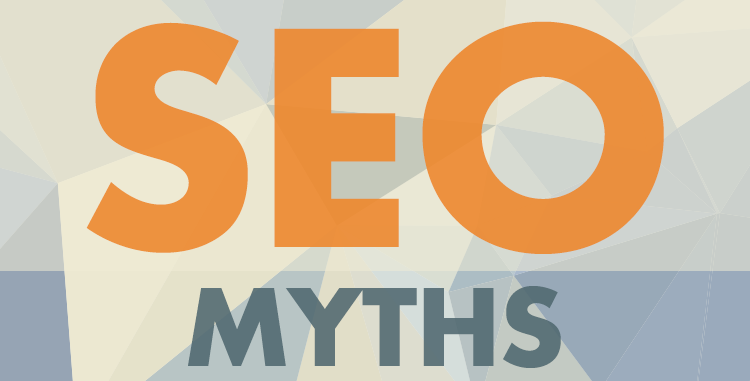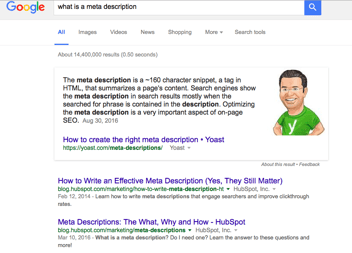
Search engine optimization best practices tend to change every year, which can be both annoying and a challenge to keep up with. It’s essential that your inbound marketing team is well aware of new trends and keeps up to date with important changes, or your website could quickly become outdated and lose its SEO foothold. Here are several SEO myths taken from HubSpot’s ebook, 18 SEO Myths You Should Leave Behind in 2017, with our spin and expertise added, of course.
Myth #1: SEO is ALL about rank.
While ranking as close as possible to #1 on search engine results pages (SERPs) is the goal, it’s not the end-all. The ultimate objective is to bring traffic to your website and convert visitors into customers. Let’s say you do rank #1 for a search entry or specific keyword, and the user glances over your listing first. In order for that person to actually click through to your website, that entry needs to be appropriate and compelling; in other words, it needs to be what the user is looking for at that moment.
If, for some reason, you ranked well for a keyword that's unrelated to the actual content on your webpage, for example, users will be unlikely to click through to your site because you aren’t offering something they're looking for. Make sure your titles, keywords, and meta descriptions accurately describe the content on each page of your website. This will bring more relevant traffic to your site from the results pages.
Myth #2: Keyword optimization is king.
This was truer in the past than it is today. Keyword-rich content was very important, and keywords often had to be exact matches to rank well on search engines. This is no longer the case. Huzzah! Unlike in the old days, now you can actually be punished (rather than rewarded) for repeating keywords ad nauseum or forcing awkward-sounding phrases into your content. So don’t do it!
User experience is the new king.
Keywords are still important, but instead of forcing keywords, only place them into your content in ways that flow naturally. You don’t have to repeat the same keyword phrase word for word, either. Get creative! Use related words and synonyms. "Keyword stuffing" is frowned upon and can result in your website being penalized. Your content is meant to be read, right? Then write something people will want to read! Incorporate keywords while breaking up unnatural wording into sentences or paragraphs. Google is pushing content creators to write for people, NOT machines. So, first and foremost, publish high quality, well written, relevant content to increase your rankings.
Myth #3: Meta descriptions can greatly influence website traffic.
A meta description is the brief “preview” or overview of a page's content listed under the title on SERPs. Google has told us that these content snippets don’t impact search rankings. That doesn’t mean they aren’t important, however! Remember, the ultimate goal is to attract appropriate traffic to your website. Your meta description helps users understand what they’ll find on the your website if they click on your link. If the summary doesn’t convince them that the information they’ll find will be worthwhile, they’ll move onto another, more compelling listing.
An entire article could be devoted to exploring each of these myths; what we’ve provided today is just touching the surface. If you’d like to learn more about content creation or need SEO help, you can find hundreds of great articles on our inbound marketing blog! You can also reach out to us directly, and we’ll help you find answers to any questions you have.
Blue Frog Marketing offers inbound marketing services for businesses of all shapes and sizes. We have offices in Des Moines, Denver, and Huron, but we work with clients across the nation. Contact us today!



